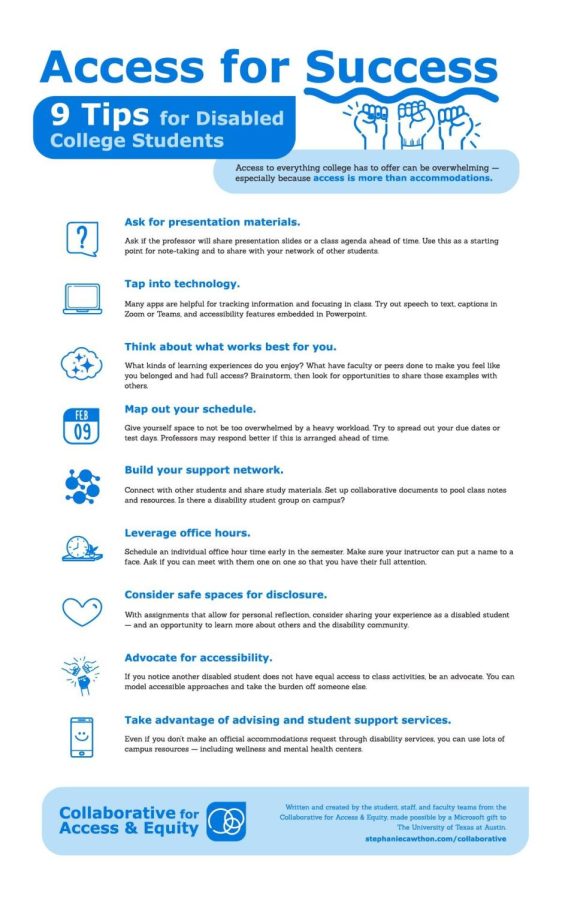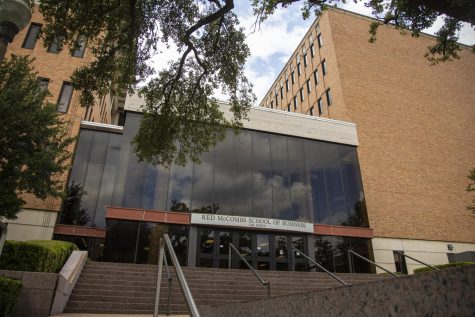UT community members create strategies to improve inclusivity for students with disabilities
August 26, 2022
University students and faculty worked with the Collaborative for Access and Equity this summer to publish advice for students with disabilities on how to benefit more from their classes.
The team used an infographic to give tips for disabled college students including, but not limited to, taking advantage of advising and student support services such as the Counseling and Mental Health Center, using speech-to-text technology and building a support network. They also created an infographic for strategies faculty can use to improve access for students with disabilities, such as using visual cues in lessons, offering flexible deadlines and attendance and setting a welcoming tone.
The infographics were printed on posters and distributed to various people on campus to encourage circulation of the information.
The team derived the advice from a pilot program last spring that paired coaches for students with disabilities with faculty members who met to reflect on strategies to improve inclusivity.
Stephanie Cawthon, a professor of educational psychology and special education who led the pilot program, said the team used 1,000 hours of dialogue from the meetings to compile and narrow down the advice for the infographics.
“One thing that they definitely took from the project was that what’s good for students with disabilities is good for all students. It’s good teaching,” said Cawthon, the Collaborative for Access and Equity project director. “It’s about quality teaching and the entry point was thinking about accessibility.”
Ryan Mata, pilot program coordinator and doctoral student, said because the campus community is so large, spreading the information beyond the College of Education, where the information is especially applicable, may present a challenge.
“We really want to have (the infographics) be a far-reaching impact because it’s an issue in all different kinds of classrooms and departments,” Mata said.
Mata said the team sent care packages with the infographics to professors and organizations across campus that contained copies of each poster to hang up in classrooms and halls.
“Every student who struggles with a disability, whether it’s officially recognized or not, or whether or not it’s something that’s highly visible in the classroom, deserves to have their voice heard and deserves to be accommodated,” Mata said.










